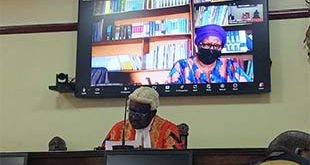
Kampala, Uganda | THE INDEPENDENT | The Ministry of Education and Sports is introducing a new license which will enable school proprietors to start comprehensive schools covering children in primary one to primary four.
The idea is one of the proposals in the new Early Childhood Care and Education Sector Policy. It is intended to streamline the education and development of children from conception to 8 years of age.
The introduction of the said license means that there will be three authorizations at the lower level of education including kindergarten-covering three to six years and infant- covering ages six to eight- in addition to the existing primary school cycle. Currently, a school can be licensed either as primary, covering classes one to seven or as an early childhood development center for pre-school institutions.
Elizabeth Kisakye, the senior education officer in charge of early childhood education says that the proposal will allow the creation of more infant schools to specifically give a variety and targeted services ranging from basic healthcare, adequate nutrition, nurturing, care and stimulation within a safe and clean environment.
However, according to Kisakye, a given school may still opt to teach from primary one to seven as the arrangement has been.
In 2007, the ministry laid out a plan stressing the importance of Early Childhood Education (ECD). Subsequently, a learning framework for the same was developed to guide in the early stimulation of different parts of the brain of a child to provide social and learning advancement throughout life.
In 2013, The teacher training curriculum was changed making it mandatory for teacher trainees to specialize either in teaching lower or upper classes but not both as it was earlier. Currently, the lower primary teacher is taught separately concentrating on equipping him or her with special knowledge and skill of handling learners at said infant level.
*****
URN
 The Independent Uganda: You get the Truth we Pay the Price
The Independent Uganda: You get the Truth we Pay the Price


